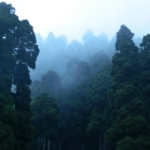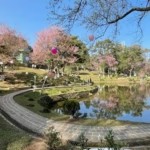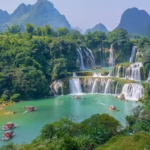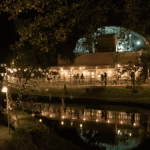Kashmir, often called the “Paradise on Earth”, is famous for Dal Lake and Wular Lake, but beyond these popular attractions lies a secret world Kashmir’s hidden lakes. Tucked away in high-altitude meadows and snow-capped valleys, these pristine water bodies are untouched by mass tourism. For trekkers, nature lovers, and anyone seeking peace, exploring these hidden gems is a once-in-a-lifetime experience.
Why Visit Kashmir’s Hidden Lakes?
1. Untouched Beauty and Solitude
Unlike the tourist-heavy Dal Lake, these hidden lakes remain untouched and peaceful. Their crystal-clear waters reflect the mighty Himalayas, creating picture-perfect landscapes with only the whispers of wind and birdsong in the background.
2. Escape Crowds and Noise
Tourist spots can feel overwhelming, but here, you’ll find solitude. These lakes let you truly experience the raw, natural beauty of Kashmir without distractions.
3. Biodiversity and Landscapes
From colorful alpine flowers to rare Himalayan birds and even wild mountain animals, the areas around these lakes are rich in biodiversity. Surrounded by meadows, forests, and rugged peaks, every trek to these lakes is a scenic journey.
Top Hidden Lakes of Kashmir You Must Explore
Tarsar and Marsar Lakes: Known as twin lakes of Kashmir, they are surrounded by lush meadows and snowfields. Popular among trekkers, these lakes look especially magical under the golden sunrise.
Vishansar and Krishansar Lakes: Located at high altitudes, these lakes change color depending on the light and weather. Their mirrored reflections of the surrounding mountains make them a photographer’s dream.
Gangbal Lake: Nestled at the base of Mount Harmukh, this sacred lake is a rewarding destination after a moderate trek. It is one of the largest alpine lakes in Kashmir.
Gadsar Lake: Nicknamed the “Lake of Flowers”, Gadsar is surrounded by wildflower-filled meadows in summer. Its beauty makes it a highlight of the Great Lakes Trek.
Best Trekking Routes to Explore Kashmir’s Hidden Lakes
Tarsar Marsar Trek
- Duration: 7 days
- Difficulty: Moderate
- Highlights: Alpine meadows, snow bridges, and serene lakes.
Kashmir Great Lakes Trek
- Duration: 7-8 days
- Difficulty: Moderate to Challenging
- Highlights: Multiple lakes in one trek Vishansar, Krishansar, Gadsar, Gangbal.
Gangbal Lake Trek
- Duration: 3-4 days
- Difficulty: Moderate
- Highlights: Stunning views of Mount Harmukh and peaceful camping near Gangbal.
Best Time to Visit Kashmir’s Hidden Lakes
- June to September: The best season. The meadows bloom, lakes are full, and trails are clear.
- October to February: Not suitable heavy snowfall makes trekking dangerous.
- March to May: Melting snow and chilly winds; some trails open in late spring.
What to Pack for Your Lake Trek in Kashmir
Essential Trekking Gear
- Sturdy trekking boots
- Lightweight tent and sleeping bag
- Hiking poles for balance
Clothing
- Warm layers (temperatures drop even in summer)
- Waterproof jacket, gloves, and cap
- Sunglasses and sunscreen
Safety & Survival Items
- First-aid kit
- Energy snacks and water purification tablets
- Always stick to marked trails and trek with a guide
Travel Tips for Exploring Kashmir’s Lakes
Permits: Some routes need permits check with local authorities.
Local Guides: Hiring a guide ensures safety and adds cultural insights.
Trekking Safety: Don’t trek alone; inform someone about your route.
Eco-Friendly Travel: Carry back your waste and respect the fragile environment.
Cultural Respect: Follow local traditions and avoid disturbing wildlife.
Conclusion
A journey to Kashmir’s hidden lakes is more than an adventure; it’s a chance to discover serenity, untouched beauty, and cultural richness. Whether you’re camping under the stars at Gangbal, walking through wildflower meadows near Gadsar, or trekking the iconic Great Lakes trail, every step brings you closer to paradise.
Plan your Kashmir Hidden Lakes Tour with GoVista India for a seamless experience, expert guidance, and safe trekking arrangements.
FAQs About Kashmir’s Hidden Lakes
Most treks are moderate (like Tarsar Marsar), but some, like the Great Lakes Trek, can be challenging.
Yes, some treks require permits, especially those passing through protected zones.
Yes, camping is allowed, but trekkers must follow eco-friendly practices.
You may spot Himalayan marmots, musk deer, and birds like golden eagles and monals.
No, most lakes are inaccessible due to heavy snow. The best season is June-September.





